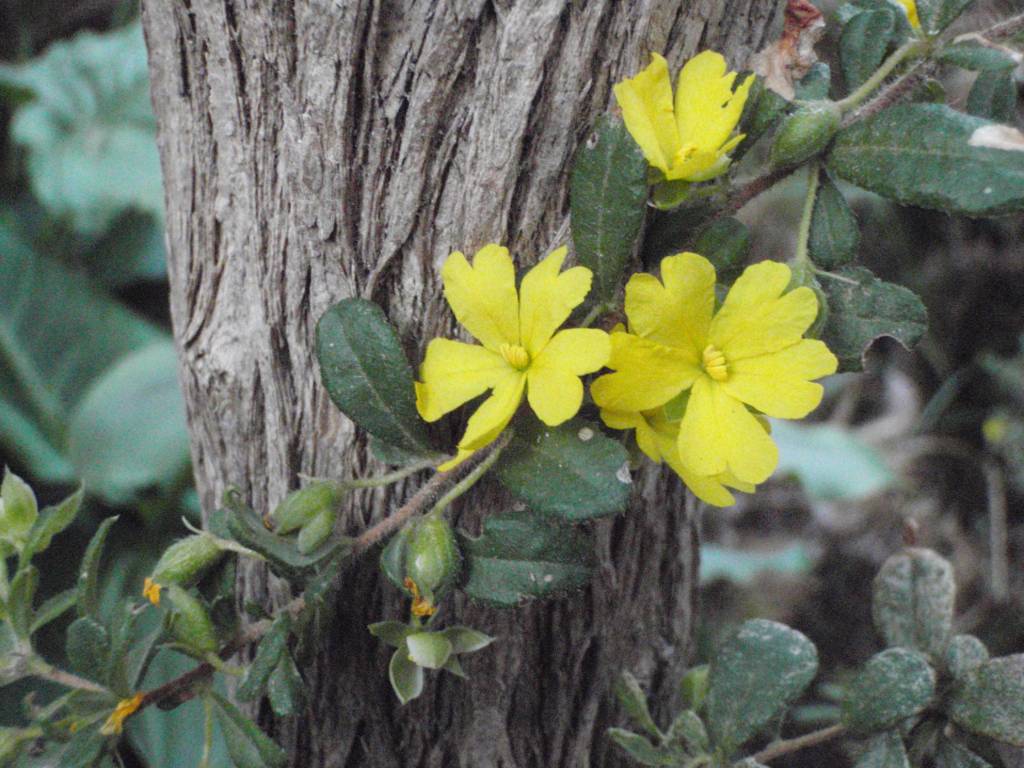Scientific Name: Hibbertia hirticalyx
Common Name: bassian guineaflower
Family Classification (Clade): Eudicots
Family: Dilleniaceae
Form Description: Erect shrub with long straggling branches. May climb over other plants.
Flowers: 1-1.5cm across, petals yellow, stamens grouped at one side of the hairy ovary.
Fruit: Bi-lobed follicle
Municipality
Plant Communities
Habitat Notes
Known in a few isolated patches in north and north-east Tasmania and the Furneaux Islands but may be more widespread. Will grow in most soils and aspects.
Site Tolerance
Dry, Exposed, Moist, Rocky, Shady, Windy
Soil Tolerance
Clay, Fertile, Loam, Nutrient-poor, Sandy, Well-drained
Frost Tolerance
Moderate
General Notes
Susceptible to Phytophthora cinnamomi, otherwise hardy.
Propagation Calendar
-
Flowering Month
Jan Feb Mar Apr May Jun Jul Aug Sep Oct Nov Dec -
Seed Collecting Month
Jan Feb Mar Apr May Jun Jul Aug Sep Oct Nov Dec -
Sowing Month
Jan Feb Mar Apr May Jun Jul Aug Sep Oct Nov Dec -
Cutting Month
Jan Feb Mar Apr May Jun Jul Aug Sep Oct Nov Dec
Propagation Method
Seed Information
Seed Collection
Seed collection is difficult and time consuming. Round brown seeds drop quickly during hot weather. Only a few viable seeds are produced which are often predated by insects which bore minute holes in seed.
Seed Treatment Method
Smoke Smoke treatment improves germination in some species. Smokey products, e.g. smokey vermiculite, can be purchased and applied to the sown seed, or sown seeds can be treated directly with smoke from a source such as a drum with a fire and hose.
Seed Storage Life
1-2 years
Seed Treatment Notes
Difficult to germinate from seed; germination rate may be improved slightly by smoke treatment.
Germination Time
1-3 months
Cutting & Division Information
Usually propagated from softwood or semi-hardwood cuttings.
